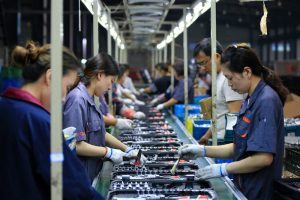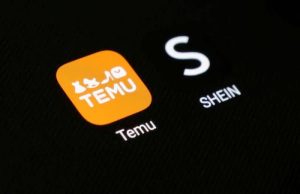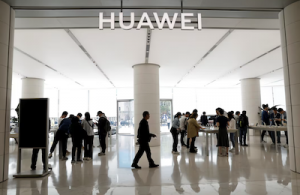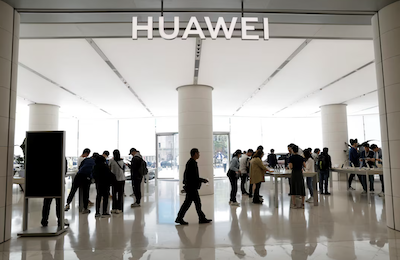DeepSeek’s sudden emergence as a serious provider of artificial intelligence has led to a swarm of local cloud service providers, chipmakers and others to adopt the startup’s AI models.
With Beijing happy to promote the company, despite widespread belief that DeepSeek’s model costs were massively understated (more on than below), local analysts have been happy to hail the firm’s success as a “watershed moment” for the industry.
Moore Threads and Hygon Information Technology, which makes AI chips and looks to compete with Nvidia, said on Monday their computing clusters and accelerators would be able to support DeepSeek’s R1 and V3 models.
ALSO SEE: China ‘Promoted DeepSeek AI Launch Prior to US Stock Plunge’
“We pay tribute to DeepSeek,” Moore Threads headlined its post on WeChat, adding that progress by the firm’s models using domestically made graphic processing units (GPU) could “set on fire” China’s AI industry.
Huawei to integrate DeepSeek models
On Saturday, Huawei Technologies, which also has its own line of AI chips, said it was working with AI infrastructure start-up SiliconFlow to make DeepSeek’s models available to customers on its Ascend cloud service.
Their performance was comparable to models run on global, high-end chips, it added.
The news that Huawei had integrated DeepSeek’s models with its Ascend chips marked a “watershed moment,” Bernstein analysts said in a note on Sunday.
“DeepSeek demonstrates that competitive large language models (LLM) can be deployed on China’s ‘good enough’ chips, easing reliance on cutting-edge US hardware”,” they added, citing Ascend and planned chips from Cambricon and Hygon.
Alibaba, Baidu and Tencent’s cloud arms have also said they have made DeepSeek’s models accessible via their services.
Last month, DeepSeek launched a free AI assistant that it says uses less data at a fraction of the cost of existing services.
Within a few days, its app overtook US rival ChatGPT in downloads from Apple’s App Store, triggering a global selloff in tech shares.
Earlier the company earlier drew attention in global AI circles with a research paper in December that said the training of DeepSeek-V3 required less than $6 million worth of computing power from Nvidia’s H800 chips, versus the billions of dollars spent by the likes of tech giants Meta and Microsoft.
But the estimated real cost is way higher, according to recent reports.
‘$1.6 billion to build computing clusters’
“DeepSeek’s total server capital expenditure may have reached $1.6 billion with a buildout of around 50,000 Nvidia Hopper GPUs, including operating costs of $944 million for the computing clusters,” according to the South China Morning Post, which cited US research firm SemiAnalysis.
But analysts have also praised the young startup company for its innovative software.
“While we can debate the ‘real’ actual GPU costs of DeepSeek, the undeniable factor is its output,” Morgan Stanley analysts Shawn Kim and Duan Liu wrote in a report on Sunday. “This is a game changer, supporting the AI applications and agents that are built on it.”
“The model is smaller, and with some other innovations, significantly lowered the cost of training and running it,” the analysts added, the Post report added.
Not surprisingly, Beijing has welcomed its success, turning the startup based in the eastern city of Hangzhou, and the firm’s founder, Liang Wenfeng, into pop culture celebrities.
Microsoft and Amazon’s cloud services have also started offering DeepSeek’s models but several countries such as Italy and the Netherlands have blocked, or are investigating, DeepSeek’s AI app on concerns of privacy.
- Reuters with additional input and editing by Jim Pollard
ALSO SEE:
Curbing Chinese Access to US AI Models May be Hard: Analysts
Meta Set up ‘War Rooms’ to Study DeepSeek AI Model – Fortune
DeepSeek Breakthrough or Theft? US Probes ‘AI Data Breach’
Tech Selloff Extends to Japan as DeepSeek Puts Focus on AI Costs
‘AI Breakthrough’ by China’s DeepSeek Rocks US Tech Giants
SoftBank, UAE’s MGX Join $500bn Data Centre Deal With OpenAI
Bytedance ‘Plans $20 Billion Outlay on AI Infrastructure This Year’
Biden Restricts Access to AI Chips to US Firms And Its Allies
US Rules to Limit Investment in China’s Chips, Quantum and AI
US Ban on Investment Not Good For AI Sector, China Says
China’s Bid to ‘Cheat’ a Way to Chip Prominence is Failing: Envoy
























